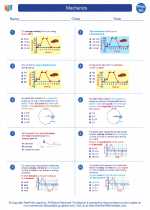NADPH
NADPH, or nicotinamide adenine dinucleotide phosphate, is a coenzyme that plays a crucial role in various metabolic reactions, especially in anabolic pathways such as lipid and nucleic acid synthesis. It is derived from NADP+ through the addition of an additional phosphate group and the reduction of the nicotinamide ring.
Function
NADPH is primarily involved in providing reducing equivalents for biosynthetic reactions and antioxidant defense systems. It is a key player in the electron transport chain, where it acts as a reducing agent to provide energy for the synthesis of macromolecules and to combat oxidative stress by regenerating antioxidant molecules like glutathione.
Biological Significance
NADPH is essential for the survival and growth of all living cells. It is particularly important in photosynthesis, where it acts as a source of reducing power for the synthesis of carbohydrates from carbon dioxide. Additionally, NADPH is crucial for the detoxification of drugs and chemicals in the liver, as well as for the immune system's defense against microbial pathogens.
Study Guide
- Understand the structure and chemical composition of NADPH.
- Learn about the role of NADPH in anabolic pathways and its contribution to biosynthesis.
- Explore the involvement of NADPH in the electron transport chain and its function in combating oxidative stress.
- Study the biological significance of NADPH in different cellular processes, such as photosynthesis, detoxification, and immune response.
- Review specific examples of NADPH-dependent reactions and their importance in metabolism and cellular function.



